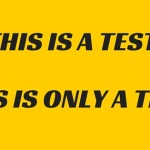A federal judge in Michigan has granted a partial summary judgment in favor of a defendant that was accused of violating the Telephone Consumer Protection Act, rejecting the plaintiff’s experience witness report and ruling that the Aspect System used by the defendant does not meet the definition of an automated telephone dialing system.
A copy of the ruling in Keyes v. Ocwen Loan Servicing can be accessed by clicking here.
The District Court judge first granted a motion from the defendant to exclude the expert report of Jeffrey Hansen, who submitted a report in support of the plaintiff’s claim that the Aspect System is an ATDS. There was one small detail that was left out of Hansen’s report: he never tested the Aspect System to determine if it was an ATDS; he merely reviewed the manuals and ran tests on his computer.
No evidence in the record indicates that Hansen has tested or inspected the Aspect System which Ocwen called Keyes from, or that Hansen has reviewed any patents which detail the specifications for how Ocwen uses the Aspect System to make calls.
…
As a result, Hansen’s report is “unsupported speculation” and a “mere guess” regarding how Ocwen uses the Aspect System.
To reinforce its point, the judge also ruled that Hansen made improper legal conclusions in his report.
In moving forward and granting summary judgment in favor of the defendant, the judge then looked at whether the Aspect System meets the definition of an ATDS under the TCPA. In using the ruling in ACA International v. FCC, which set aside “all of the [FCC’s] rulings regarding the functions an autodialer must be able to perform, namely its interpretation of whether a device needed to be able to generate and call random or sequential numbers to constitute an ATDS,” the judge determined that he “must reach back to the statutory language” of what defines an ATDS in the TCPA. The TCPA states that a system must have the capacity to store or produce telephone numbers to be called, using a random or sequential number generator, and to be able to dial such numbers. It was clear that the Aspect System used by Ocwen does not meet that definition.
All agree that the Aspect System dials numbers from a set list. The parties further agree that the system does not produce or store numbers using a random or sequential number generator, and call those numbers.
Along with the claims of violating the TCPA, the plaintiff accused the defendant of violating state law in Michigan. In granting summary judgment on the TCPA claims, only the state claims were left, and the judge declined to rule on those potential violations and closed the case.








